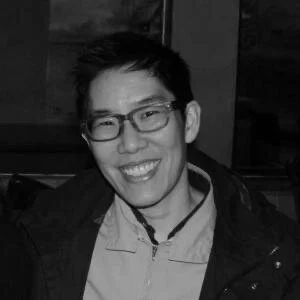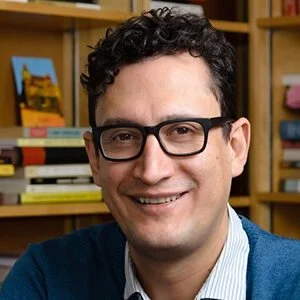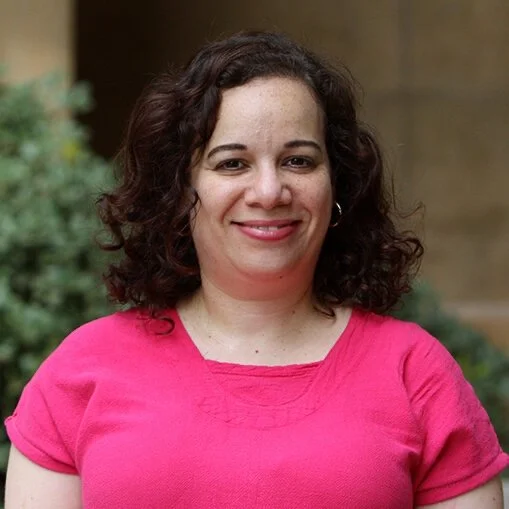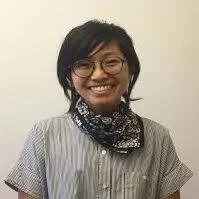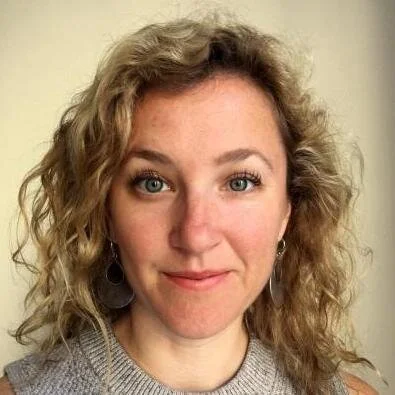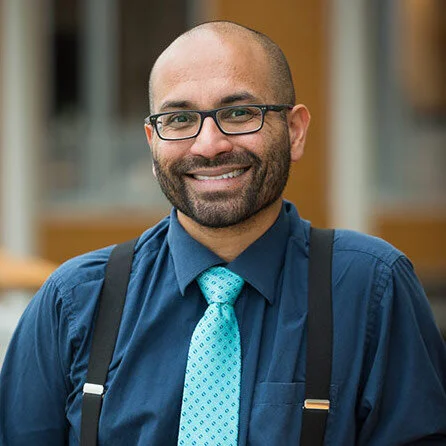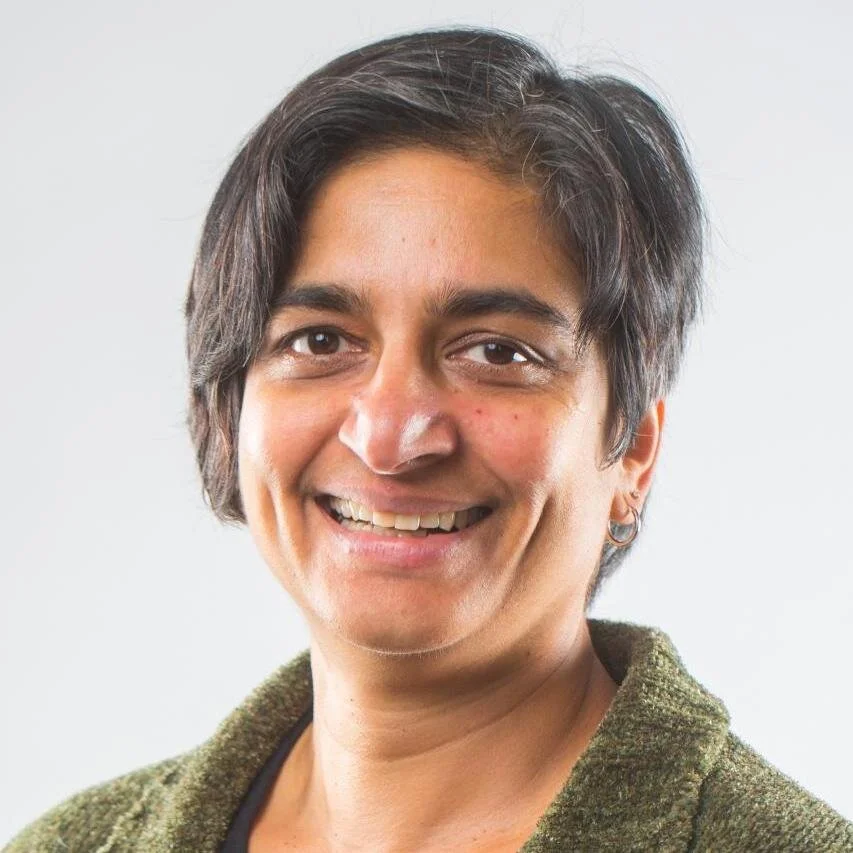Senior Fellows
Soha Bayoumi
The Johns Hopkins University
Medicine, Science, and the Humanities
-
Soha Bayoumi is Senior Lecturer in the Medicine, Science, and the Humanities Program at the Johns Hopkins Krieger School of Arts and Sciences. Her work is informed by political theory, gender studies, and postcolonial studies and centers the ways in which medical expertise is shaped by and deployed in different political contexts, particularly in the Middle East. She is presently completing two book projects, one (with Sherine Hamdy) on the work of doctors in the Egyptian uprising of 2011 and its aftermath, and the other on the social and political roles of doctors in relation to health and justice in postcolonial Egypt. She serves as editor-in-chief for the Journal of Middle East Women's Studies and as associate editor for the Journal of Islamic and Muslim Studies.
Kevin Bruyneel
Babson College
Politics
-
Kevin Bruyneel is Professor of Politics at Babson College. He wrote The Third Space of Sovereignty: The Postcolonial Politics of U.S.-Indigenous Relations (University of Minnesota Press, 2007). He presently writes on the relationship between race, colonialism and collective memory. He is writing a book, entitled Settler Memory: The Disavowal of Indigeneity in the Political Life of Race in the United States, which will be published in the Critical Indigeneities Series of the University of North Carolina Press. He has recently published articles in History & Memory, Settler Colonial Studies, Native American and Indigenous Studies Journal, and The Journal of French and Francophone Philosophy. Bruyneel was born and raised in Vancouver, British Columbia, the traditional territories of the Musqueam, Squamish and Tsleil-Waututh Nations. Bruyneel completed his PhD at the New School for Social Research in New York City. At Babson College, Bruyneel teaches courses in Political Theory, American Politics, Critical Race Studies, Indigenous Studies, and Radical Politics.
Mel Y. Chen
University of California, Berkeley
Gender & Women’s Studies
-
Mel Y. Chen is Associate Professor of Gender & Women’s Studies at U.C. Berkeley and Director of the Center for the Study of Sexual Culture. They are also an affiliate of the Center for Race and Gender, the Institute for Cognitive and Behavioral Science, the Center for Science, Technology, Medicine, and Society, and the Haas Disability Studies and LGBTQ Citizenship Research Clusters. Their research and teaching interests include queer and gender theory, animal studies, critical race theory and Asian American studies, disability studies, science studies, and critical linguistics. Chen’s 2012 book, Animacies: Biopolitics, Racial Mattering, and Queer Affect (Duke University Press) was the winner of Alan Bray Award from Modern Language Association’s GL/Q Caucus and explores questions of racialization, queering, disability, and affective economies in animate and inanimate “life” through the extended concept of “animacy.” A second book project concerns the relationships among the conceptual territories of “toxicity” and “intoxication” and their involvement in histories of the shared interanimation of race and disability.
In the Fall of 2009, Chen convened “Species Spectacles”, a U.C. Humanities Research Institute Residential Research Group focused on animality, sexuality and race. Chen’s short film, Local Grown Corn (2007), explores interweavings of immigration, childhood, illness and friendship; it has played in both Asian and queer film festivals. In 2018-2010, they taught as a Robert Sterling Clark Professor at Williams College.
Pablo Gómez
University of Wisconsin-Madison
History
-
Pablo F. Gómez is Associate Professor of History and the History of Medicine at the University of Wisconsin—Madison. His work examines the history of health and corporeality in the early modern world with a particular focus on Latin America, the Caribbean, the African diaspora and, more generally, the Iberian and Black Atlantic Worlds. His book, The Experiential Caribbean: Creating Knowledge and Healing in the Early Modern Atlantic (UNC Press, 2017) was the winner of the William H. Welch Medal, the Albert J. Raboteau Book Prize, and Honorable Mention-Bolton-Johnson Book Prize. In it, he explores belief making and the creation of evidence around the human body and the natural world in the early modern Caribbean. Gómez is currently working on a history of the quantifiable body and the development of novel ideas about risk, labor, and disease that appeared in Atlantic slave markets during the seventeenth century. He is also actively involved in projects of digital archival preservation in Colombia, Cuba and Brazil.
Sherine Hamdy
University of California, Irvine
Anthropology
-
Sherine Hamdy, Associate Professor in Anthropology at the University of California, Irvine, studies medical anthropology and science and technology in the Middle East. She is an experimental ethnographer who uses comics to bring her research to a wider audience. Her first graphic novel, Lissa: A Story About Medical Promise, Friendship, and Revolution (University of Toronto Press, 2017), is a co-authored fictional piece, integrating her research on organ transplantation and failure, Muslim bioethical accounts of what you can and can’t do to the body, and health and inequality— why certain people end up in organ failure and others don’t— through the story of two characters who were based upon hundreds of interviews. Outside of her work in comics, Hamdy published Our Bodies Belong to God: Organ Transplants, Islam, and the Struggles for Human Dignity in Egypt (UCI Press, 2012), which received the Clifford Geertz Honorable Mention Book Prize . Her anthropological studies have been published in Medical Anthropology; Culture, Medicine, and Psychiatry; the Journal of Theoretical Medicine and Bioethics; and American Ethnologist. Hamdy earned her PhD in Anthropology at New York University in 2006.
Vivian L. Huang
Williams College
Women’s, Gender & Sexuality Studies
-
Vivian L. Huang is Assistant Professor of Communication Studies at San Francisco State University, specializing in race and performance studies. Her first book, Surface Relations: Queer Forms of Asian American Inscrutability, theorizes minoritarian aesthetics of inscrutability in contemporary Asian American literary, visual, and performance cultures.
Terence Keel
University of California, Los Angeles
African American Studies
-
Terence Keel is an Associate Professor in the Department of African American Studies and Institute for Society and Genetics at the University of California, Los Angeles. He is the author of the widely acclaimed Divine Variations (Stanford University Press, 2018) and the Founding Director of the BioCritical Studies Lab. Keel's teaching, research, and community engagement fall at the intersection of the social, political, and ethical conditions that produce and abolish discrimination within our society. He is a co-editor of the forthcoming book Critical Approaches to Science and Religion (Columbia University Press, 2021), with Myrna Perez-Sheldon and Ahmed Ragab. Keel is also working on a third book, Society after Nihilism: The Medicolegal Erasure of Accountability at the End of American Life. This work is centered by community engagement in Los Angeles and brings together medical humanities, data science, and bioethics to study racial discrimination and nihilism that appear in the United States medical examiner system and contribute to the erasure of state accountability for taking the lives of BIPOC populations and the under-employed.
Kareem Khubchandani
Tufts University
Theatre, Dance & Performance Studies
-
Kareem Khubchandani is the Mellon Bridge Assistant Professor in the Department of Drama & Dance and the Program in Women’s, Gender, and Sexuality Studies at Tufts University, teaching at the intersection of performance studies and queer studies. He holds a PhD in Performance Studies from Northwestern University, and previously served as the inaugural Embrey Foundation Postdoctoral Fellow at the Center for Women’s and Gender Studies at the University of Texas at Austin.
Khubchandani is developing several book projects, including: Ishtyle: Accenting Gay Indian Nightlife (University of Michigan Press, forthcoming), Queer Nightlife (co-edited with Kemi Adeyemi at U. Washington and Ramón Rivera-Servera at Northwestern University), and Auntologies: Queer Aesthetics and South Asian Aunties. Khubchandani is also a performance artist, working in drag, storytelling, body art, theater, and digital media. His videos have been screened at the Mississauga South Asian Film Festival, Austin OUTsider multi-arts festival, Hyderabad Queer Film Festival, and San Francisco 3rd i film festival. As his alter ego LaWhore Vagistan, he has performed at the Austin International Drag Festival, Mustard Seed South Asian Film Festival (Philadelphia), The Asia Society (NYC), AS220 (Providence) Queens Museum, Jack Theater (Brooklyn), Bronx Academy of Arts and Dance, Not Festival (Riverside), Links Hall (Chicago), and A.R.T. Oberon (Cambridge).
Doug Kiel
Northwestern University
History
-
Doug Kiel, Assistant Professor of History at Northwestern University, is a citizen of the Oneida Nation and studies Native American history, with particular interests in the Great Lakes region and twentieth century Indigenous nation rebuilding. He is working on a book manuscript entitled Unsettling Territory: Oneida Indian Resurgence and Anti-Sovereignty Backlash, which examines how the Oneida Nation’s leaders strengthened the community’s capacity to shape their own future by envisioning, deliberating, and enacting a dramatic reversal of fortune during the twentieth century. His book also examines the origins of recent litigation between the Oneida Nation and the Village of Hobart, a mostly non-Native municipality that is located within the boundaries of the Oneida Reservation and seeks to block the tribe from recovering land that was lost a century ago.
Prior to joining the Northwestern faculty, he taught at Williams College, Columbia University, the University of Pennsylvania, and Middlebury College. He is the recipient of grants and fellowships from the Ford Foundation, Woodrow Wilson National Fellowship Foundation, the Lyndon Baines Johnson Foundation, the American Philosophical Society, the Newberry Library, and the School for Advanced Research (SAR) in Santa Fe, NM, among others. Beyond the university, Kiel has worked in several museums, testified as an expert witness in regards to Indigenous land rights, and in 2008 was as an Indigenous Fellow at the United Nations Office of the High Commissioner for Human Rights (OHCHR) in Geneva, Switzerland. He currently serves on the advisory committee for the renovation of the Field Museum’s exhibition on Native North America.
Chakanetsa Mavhunga
Massachusetts Institute of Technology
Science, Technology, and Society
-
Clapperton Chakanetsa Mavhunga is Associate Professor of Science, Technology, and Society at Massachusetts Institute of Technology. His latest book is entitled The Mobile Workshop: The Tsetse Fly and African Knowledge Production (MIT Press, 2018). His professional interests lie in the history, theory, and practice of science, technology, innovation, and entrepreneurship in the international context, with a focus on Africa. Mavhunga joined MIT as an assistant professor in 2008 after completing his PhD at the University of Michigan. He is the author of Transient Workspaces: Technologies of Everyday Innovation in Zimbabwe (MIT Press, 2014), which received Honorable Mentions in the Turku Prize (European Society for Environmental History) and Herskovits Prize (African Studies Association) in 2015. His second is an edited volume entitled What Do Science, Technology, and Innovation Mean from Africa? (MIT Press, 2017), which explores STI in Africa from an archaeological, historical, philosophical, anthropological, STS, engineering, development, and policymaking perspective. His current book project focuses on African modes of chemistry, focusing on the making and strategic deployment of plant, animal, and mineral materials as poisons and medicines. Some of Mavhunga’s essays appear in Social Text, History and Technology, Transfers, and Journal of Southern African Studies.
Gregory Mitchell
Williams College
Women’s, Gender & Sexuality Studies
-
Gregory C. Mitchell is Chair and Associate Professor at Williams College in Women’s, Gender & Sexuality Studies. He is also affiliate faculty in the Latina/o Studies Program and the Department of Anthropology & Sociology. From 2019-2020, he will serve as ACLS Burkhardt Fellow at Princeton University’s Program in Gender & Sexuality Studies. He studies sex worker migration, prostitution, race, and discourses of sex trafficking as well as the effects of public policy approaches. At present, he is conducting research funded by the National Science Foundation to examine how states incentivize particular narratives and performances of nationalism in their attempts to police female sex workers, especially during global sporting events. Mitchell’s first book, Tourist Attractions: Performing Masculinity & Race in Brazil’s Sexual Economy (University of Chicago Press, 2016), is an ethnography of men who sell sex in several cities in Brazil. Tourist Attractions received an Honorable Mention for the Ruth Benedict Prize for monographs from the American Anthropological Association. His second book (currently underway) is tentatively titled 40,000 Missing Girls: Moral Panics, Sporting Events, and the Spectacle of Sex Trafficking. It examines police violence against female sex workers during periods preceding mega-events like the World Cup and the Olympics. Mitchell holds his PhD in Performance Studies from Northwestern University, from which he also received a PhD Certificate and served as a Mellon Fellow in Gender Studies. While there, he also received the Presidential Fellowship and membership in the Society of Fellows, that university’s highest honor for doctoral researchers.
Durba Mitra
Harvard University
Studies of Women, Gender & Sexuality
-
Durba Mitra is Assistant Professor of Women, Gender, and Sexuality and Carol K. Pforzheimer Assistant Professor at the Radcliffe Institute at Harvard University. Mitra works at the intersection of feminist and queer studies. Her research and teaching focus on the history of sexuality, the history of science and epistemology, and gender and feminist thought in South Asia and the colonial and postcolonial world. Mitra is a faculty associate of the Weatherhead Center for International Affairs and is on the Asia Center Council at Harvard.
Mitra’s book, Indian Sex Life: Sexuality and the Colonial Origins of Modern Social Thought (Princeton University Press, 2020), demonstrates how ideas of deviant female sexuality became foundational to modern social thought. She is a recipient of the 2019 Roslyn Abramson Award for Excellence in Undergraduate Teaching at Harvard, which recognizes teachers for “excellence and sensitivity in teaching undergraduates.” Mitra is a founding member of xpMethod: Group for Experimental Methods in Humanistic Research, where she is the moderator for the GenderSex Collective. She co-organizes the “Architectures of Knowledge” workshops, which has led to collaborative research projects on digital archives in Mumbai, India, Lahore, Pakistan, and among diverse communities in the US.
Projit Mukharji
University of Pennsylvania
History of Science
-
Projit Bihari Mukharji is Associate Professor in the Department of History & Sociology of Science at the University of Pennsylvania. His training has been firmly within the Subaltern Studies tradition, and he is interested in issues of marginality and marginalization both within and through science. In Mukharji’s first monograph, Nationalizing the Body (Anthem Press, 2009), he wrote about the South Asian doctors and medical subordinates who were employed in the lower echelons of the colonial medical establishment in British India. In his second monograph, Doctoring Traditions (University of Chicago Press, 2016), he explored how Ayurvedic medicine modernized under colonialism. Currently, he is working on a history of human difference and race in 20th century South Asia.
Julie Orlemanski
University of Chicago
English
-
Julie Orlemanski is Assistant Professor of English at the University of Chicago. She teaches and writes about texts from the late Middle Ages and theoretical and methodological questions in present-day literary studies. In addition to longstanding interests in hermeneutics and historicism, other ongoing research interests include the Song of Songs, disability studies and the history of the body, narratology, and the secularization thesis or so-called disenchantment of the world.
Orlemanski’s monograph, Symptomatic Subjects: Bodies, Medicine, and Causation in the Literature of Late Medieval England (University of Pennsylvania Press, 2019), considers embodiment in the historical period just prior to medicine’s modernity— before Renaissance anatomy, before the centralized regulation of medical professions, before empiricism and the rationalist division of mental from physical substance. Orlemanski serves as Book Reviews Editor at postmedieval: a journal of medieval cultural studies.
Ianna Hawkins Owen
Boston University
English & African American Studies
-
Ianna Hawkins Owen is an assistant professor of English and African American Studies at Boston University. Her current book project, Ordinary Failures, offers new theorizations of the keyword “diaspora” through an examination of negative affects in black literary and visual culture. Owen also publishes on asexuality.
Joanna Radin
Yale University
History of Science
-
Joanna Radin received her PhD in History and Sociology of Science from the University of Pennsylvania. Her research examines the social and technical conditions of possibility for the systems of biomedicine and biotechnology that we live with today. She has particular interests in global histories of biology, ecology, medicine, technology, and anthropology since 1945; history and anthropology of life and death; biomedical technology and computing; feminist, indigenous, and queer STS; and science fiction.
Radin is the author of Life on Ice: A History of New Uses for Cold Blood (University of Chicago Press, 2017), the first history of the low-temperature biobank and co-editor, with Emma Kowal, of Cryopolitics: Frozen Life in a Melting World (MIT Press, 2017), which considers the technics and ethics of freezing across the life and environmental sciences.
Suman Seth
Cornell University
Science and Technology Studies
-
Suman Seth is Professor of Science and Technology Studies at Cornell University. He works on the social, cultural, and intellectual history of science and medicine. His interests include the history of medicine, race, and colonialism, the physical sciences (particularly quantum theory), & gender and science. He is the author of Difference and Disease: Medicine, Race, and Locality in the Eighteenth-Century British Empire (Cambridge University Press, 2018), and Crafting the Quantum: Arnold Sommerfeld and the Practice of Theory, 1890-1926 (MIT Press, 2010). Seth has served as the guest editor of the “Science, Colonialism, Postcolonialism” special issue of Postcolonial Studies journal (December 2009), and of a focus section of the journal Isis on “re-locating race.” He is coeditor (with Prof. Patrick McCray) of the journal Osiris.
Seth’s current research looks at the history of medicine, race, and colonialism in the eighteenth- and nineteenth-century British Empire, with particular emphasis on the history of “seasoning,” or, as it came to be known in the nineteenth century, “acclimation” or “acclimatisation.”
Banu Subramaniam
University of Massachusetts
Women, Gender & Sexuality Studies
-
Banu Subramaniam is Professor of Women, Gender, and Sexuality Studies at the University of Massachusetts, Amherst. Subramaniam’s work engages the feminist studies of science in the practices of experimental biology. Her book, Ghost Stories for Darwin: The Science of Variation and the Politics of Diversity (University of Illinois Press, 2014) was awarded the Ludwik Fleck Prize from the Society for the Social Studies of Science in 2016. She taught as Harvard WGS Visiting Professor (2004) and Visiting Scholar (2014 – 2015). Banu’s newest book, Holy Science: The Biopolitics of Hindu Nationalism (University of Washington Press, 2019), demonstrates how Hindu nationalism sutures an ideal past to technologies of the present to make bold claims about the Vedic Sciences and the scientific Vedas. Moving beyond a critique of India’s emerging bionationalism, this book explores the generative possibility of myth and story, interweaving compelling new stories into a rich analysis that animates alternative imaginaries and “other” worlds of possibilities.
Todne Thomas
Harvard Divinity School
-
Todne Thomas is a socio-cultural anthropologist and Assistant Professor of African American Religions at Harvard Divinity School. In collaboration with Afro-Caribbean and African American congregants, Thomas conducts ethnographic research on the racial, spatial, and familial dynamics of black Christian communities in the U.S. Conceptually, her work integrates critical race and kinship theories to understand the racial and moral scripts of evangelicalism and neoliberalism.
She has authored peer-reviewed articles for the Journal of Africana Religions, Anthropology and Humanism, and the Journal of African American Studies. She has also co-edited New Directions in Spiritual Kinship: Sacred Ties across the Abrahamic Religions (Palgrave Macmillan, 2017) with Asiya Malik and Rose Wellman. Her current research examines the familial and spiritual experiences of black evangelicals and the neoliberal displacement of black sacred space.
Dorothy Wang
Williams College
American Studies
-
Dorothy Wang is Professor of American Studies at Williams College. In 2016, she was awarded Best Book in Literary Criticism from the Association for Asian American Studies (AAAS) for Thinking Its Presence: Form, Race, and Subjectivity in Contemporary Asian American Poetry (Stanford University Press, 2014), which contends that aesthetic forms are inseparable from social, political, and historical contexts in the writing and reception of all poetry. Wang received her PhD in English Literature from the University of California, Berkeley. Her areas of expertise include twentieth-and twenty-first century Asian American literature, poetry and poetics, including experimental minority poetry. At Williams, Wang teaches courses in Asian American and African American poetry and writing, and she served on the Curricular Planning Committee’s Working Group on Asian American Studies.
Kirsten Weld
Harvard University
History
-
Kirsten Weld is a Professor of History at Harvard University, as well as a historian of modern Latin America. Her research explores 20th-century struggles over inequality, justice, historical memory, and social inclusion.
Her first book, Paper Cadavers: The Archives of Dictatorship in Guatemala (Duke University Press, 2014), analyzes how history is produced as social knowledge, the labour behind transformative social change, and the stakes of the stories we tell about the past. It is a historical and ethnographic study of the massive archives generated by Guatemala’s National Police, which were used as tools of state repression during the country’s civil war, concealed from the truth commission charged with investigating crimes against humanity at the war’s end, stumbled upon by justice activists in 2005, and repurposed in the service of historical accounting and postwar reconstruction. Paper Cadavers won the 2015 WOLA-Duke Human Rights Book Award and the 2016 Best Book Award from the Latin American Studies Association’s Recent History and Memory Section. At Harvard University, Weld offers courses in modern Latin American history, US-Latin American relations, archival theory, and historical methods.



